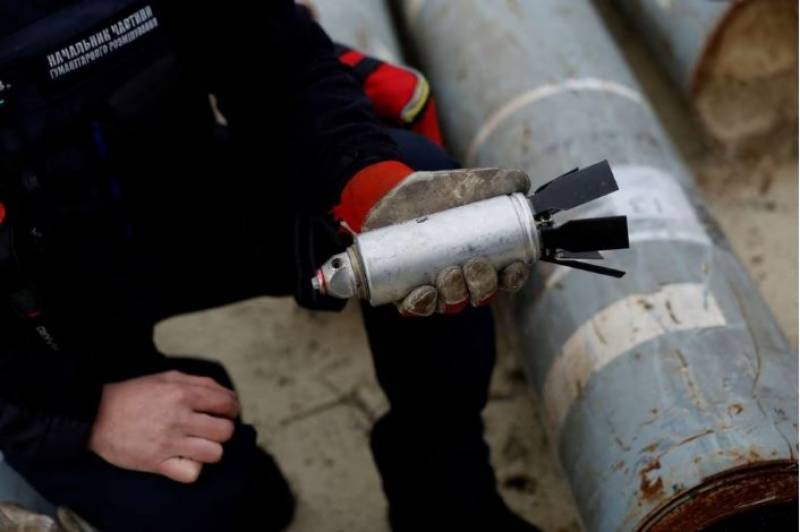Washington (Web Desk/Agencies): The United States (US) has decided to provide cluster munitions to Ukraine to help in its counter offensive against Russia.
In a news briefing, US National Security Adviser Jake Sullivan said that the decision was taken after close consultation with its allies.
He said Ukraine has provided written assurances to use the munitions in a very careful way, and minimize any risk to civilians.
Jake Sullivan said the United States will not leave Ukraine "defenseless" in the conflict with Russia.
President Joe Biden signed a presidential waiver on the transfer of the weapons in recent days, the international media reports said, quoting American officials.
The dual-purpose improved conventional munitions, or DPICMs, are surface-to-surface warheads that explode and disperse multiple small munitions or bombs over wide areas, bringing more widespread destruction than single rounds. The rounds can be charges that penetrate armoured vehicles, or they can shatter or fragment to be more dangerous for people.
It is pertinent to mention that the cluster munitions are prohibited by more than 100 countries. Russia, Ukraine and the US have not signed on to the Convention on Cluster Munitions, which bans production, stockpiling, use and transfer of the weapons.
Reacting to the US move, Russia’s Ambassador to Belarus Boris Gryzlov said that Washington’s intention to provide cluster munitions to Ukraine is “a move of desperation” as Kyiv’s counteroffensive did not go according to plan.
"Now, the ‘hawks’ in the West have realized that the much-advertised counter-offensive of the Ukrainian armed forces did not go according to plan, so they are trying at all costs to give at least some impetus to it. In fact, it is a move of desperation," Gryzlov told Russian state news agency TASS.
He claimed the US has been talking about potentially sending the controversial weapons to Ukraine since the spring.
If the US decides to proceed with the move, it would once again prove that “neither Washington nor its NATO allies want peace, and they will stop at literally nothing in their bid to achieve the elusive goal of inflicting a strategic defeat on Russia,” he added.
Meanwhile, human rights groups and the United Nations (UN) secretary-general questioned Washington's decision on the munitions, part of an $800 million security package that brings total US military aid to more than $40 billion since Russia's February 2022 invasion of Ukraine, the international media reported.
The rights groups oppose their use because of concerns that unexploded bomblets, or duds, could explode after battle, potentially injuring or killing innocent civilians.
So far as Russia-Ukraine conflict is concerned, this weekend marks exactly 500 days since the war began.
According to a UN report, Over 9,000 civilians, including over 500 children, have been killed since Russia’s invasion of Ukraine began in February 2022 —500 days ago.
The UN also warned that the true number of fatalities could be much higher than what they have been able to confirm.
May and June have seen an increase in the number of civilians killed, the UN added, after a relative decline in civilian fatalities in the first four months of the year.
“Today we mark another grim milestone in the war that continues to exact a horrific toll on Ukraine’s civilians,” said Noel Calhoun, the deputy head of the UN’s Human Rights Monitoring Mission in Ukraine (HRMMU).
The HRMMU reported that overall monthly casualties decreased earlier this year when compared to 2022, but the average number rose again in May and June, with the last two weeks among some of the deadliest since fighting began.
Recent attacks include the missile strike on a busy shopping area in the eastern city of Kramatorsk on the evening of 27 June, which killed 13 people.
The information about civilian deaths is contained in the latest report on civilian casualties in Ukraine, published by the UN Human Rights Office, OHCHR, which covers the period from the start of the war through 30 June 2023.
Overall, 25,170 civilian casualties were recorded, with 9,177 killed and 15,993 injured.
Of this number, and whose sex was known, 61% were men and 39% were women.
"Boys comprised more than 57% of casualties among children whose sex was known, and girls 42.8%," the ONHR report said.


